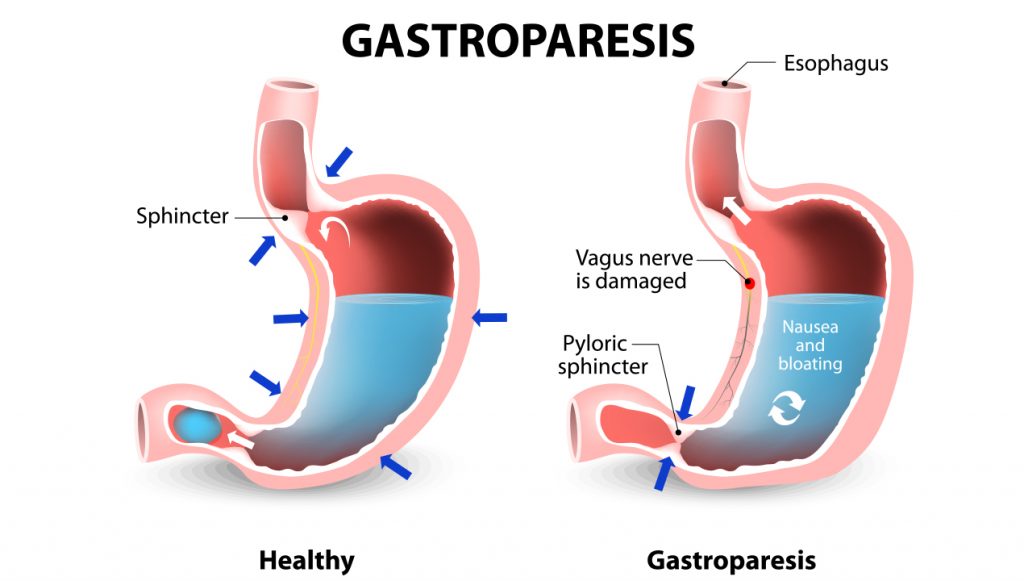Introduction
Medical research is a dynamic field that constantly strives to improve the understanding and treatment of various health conditions. Digestive tract paralysis, also known as gastroparesis, is one such condition that presents challenges for both patients and researchers. However, patients play a crucial role in advancing medical knowledge by sharing their experiences through medical surveys. This digestive tract paralysis awareness month, let us explore how participating in paid medical surveys can shape research, empower patients and lead to meaningful improvements in care and treatment.
Unraveling Digestive Tract Paralysis
Digestive tract paralysis is a condition where the muscles of the stomach don’t function properly, causing delayed emptying of the stomach contents into the small intestine. While medical professionals and researchers have made strides in understanding gastroparesis, much remains to be uncovered.
What are the symptoms of a paralyzed stomach?
Intestinal paralysis symptoms can vary, but they often include:
- Nausea and Vomiting: Feeling queasy and vomiting, especially after eating.
- Feeling Full Quickly: Sensation of fullness shortly after beginning a meal.
- Bloating: Abdominal bloating or discomfort.
- Abdominal Pain: Discomfort or pain in the upper abdomen.
- Unintended Weight Loss: Due to decreased appetite and difficulty eating.
- Heartburn or Acid Reflux: This can occur because food isn’t moving properly through the digestive tract.
- Lack of Appetite: Feeling less hungry or having reduced interest in eating.
- Erratic Blood Sugar Levels: Gastroparesis can affect blood sugar control, leading to high or low blood sugar levels in individuals with diabetes.

How to know if your stomach is paralyzed?
If you suspect you have digestive tract paralysis or are experiencing any of these symptoms, it’s important to consult a medical professional. They can diagnose the condition through a combination of your medical history, physical examination and potentially tests such as gastric emptying studies, endoscopy and imaging scans. It’s essential to get a proper diagnosis and treatment plan, as gastroparesis can lead to complications if left untreated.
The Power of Patient Participation
Every patient’s journey with digestive tract paralysis is unique. Medical paid surveys provide an avenue for patients to share their personal experiences, challenges and insights. This collective information is a treasure trove for researchers seeking to understand the condition better and improve treatment strategies. Here’s how patient participation can make a difference:
- Comprehensive Insight
Paid online medical surveys allow patients to describe their symptoms, triggers and coping mechanisms. This comprehensive insight provides researchers with a holistic view of how digestive tract paralysis affects patients’ lives. It can reveal patterns and nuances that might not be evident in clinical settings, enriching the understanding of this complex condition.
- Tailored Treatments
Patients’ feedback on various treatments, medications and lifestyle adjustments is invaluable. Paid medical surveys provide researchers with real-world data on what works and what doesn’t for patients with digestive tract paralysis. This information can lead to the development of more tailored and effective treatment plans that align with individual needs and preferences.
- Identifying Triggers
Digestive tract paralysis triggers can vary widely among patients. By participating in surveys, patients can contribute to identifying potential triggers, such as certain foods, stressors or other factors. This information can aid researchers in pinpointing common triggers and designing strategies to manage or avoid them.
- Guiding Research Focus
Patient participation in medical surveys helps researchers prioritize their efforts. When researchers understand the most pressing concerns of patients, they can direct their studies toward addressing these issues. This patient-centered approach ensures that research is both relevant and impactful for those living with digestive tract paralysis.
- Enhancing Quality of Life
The insights gathered from medical surveys can lead to significant improvements in patients’ quality of life. By participating, patients can contribute to the development of novel interventions, symptom management strategies and holistic care plans that address the physical, emotional and social aspects of living with digestive tract paralysis.
Building a supportive community
Medical surveys do more than gathering data; they build a sense of community among patients facing similar challenges. Participating patients not only contribute to research but also connect with others who share their experiences. This sense of belonging and understanding can be profoundly empowering, reducing feelings of isolation and fostering a supportive environment.
Inspiring hope
By participating in medical surveys, patients become agents of change. They send a powerful message that their voices matter and that their experiences hold the potential to drive positive transformations in healthcare. This sense of empowerment can inspire hope in patients, reminding them that their contributions are integral to advancing medical knowledge and improving the lives of others with digestive tract paralysis.
Ethical considerations
Participating in medical paid surveys is voluntary, and patient privacy is of utmost importance. Researchers adhere to strict ethical guidelines to ensure that patients’ data is handled confidentially and responsibly. Patients can feel confident that their participation will make a difference without compromising their privacy or security.

Best paid medical survey platform
In the world of patient survey sites, authenticity and trustworthiness are of paramount importance. While numerous platforms claim to offer paid medical surveys for patients, not all can be considered genuine and reliable sources. Amid this landscape, MDForLives shines as a reputable and credible platform that truly values patient perspectives and contributions. Unlike many other survey sites that may lack transparency or legitimacy, MDForLives prioritizes the ethical treatment of patient data and ensures that participants’ voices are genuinely heard in medical research. For patients seeking to share their valuable insights and experiences, MDForLives offers a secure and user-friendly environment. The platform connects patients with healthcare organizations, pharmaceutical companies and research institutions that genuinely seek patient opinions to shape their medical practices and advancements. By joining MDForLives, patients become an integral part of the healthcare dialogue, contributing to the development of treatments, medications and healthcare solutions. The process is straightforward: registered patients receive invitations to participate in surveys that align with their medical conditions or experiences. These paid online medical surveys cover a diverse range of topics, from treatment effectiveness and quality of life to patient preferences and satisfaction. Each survey comes with the highest-paid compensation in the industry to acknowledge patients’ time and insights.
Conclusion:
Participating in medical paid surveys is a remarkable way for patients to contribute to the advancement of digestive tract paralysis research. Through sharing their experiences, challenges and insights, patients become active participants in shaping the future of healthcare. By joining together, patients and researchers can collaboratively drive progress, inspire hope and improve the lives of countless individuals living with digestive tract paralysis. So, if you have a story to tell, remember that it matters and that your voice has the power to create positive change in the world of medical research.
Join the best medical survey platform MDForLives today

MDForLives is a global healthcare intelligence platform where real-world perspectives are transformed into validated insights. We bring together diverse healthcare experiences to discover, share, and shape the future of healthcare through data-backed understanding.






